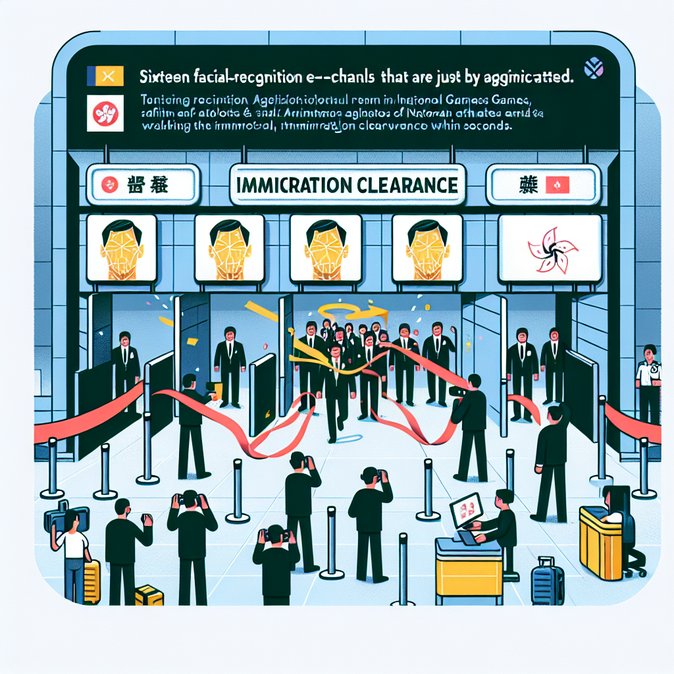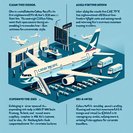
The Immigration Department has activated 16 dedicated “Face Easy” e-Channels at four major ports—Hong Kong International Airport, West Kowloon High-Speed Rail Station, the Hong Kong-Zhuhai-Macao Bridge and Shenzhen Bay—to process accredited participants of the 15th National Games arriving next month. The lanes use live facial recognition to match travellers against encrypted accreditation data, reducing average clearance time to seven seconds, compared with 45-60 seconds at conventional counters.
Each location features two inbound and two outbound gates converted from existing biometric channels. Athletes and support staff need only complete one conventional clearance on first arrival; thereafter, they may use the facial-recognition lanes for multiple entries during the 9-21 November Games period. Immigration officers will remain on standby to verify exceptions manually, but early trials show a 95 % first-pass success rate.
The initiative demonstrates Hong Kong’s push to integrate advanced border technologies ahead of a broader public rollout. The city already lowered the e-Channel age threshold to seven earlier this year and launched the “Face Easy” arrival option for residents at the airport in September. Officials say the National Games deployment provides a controlled environment to fine-tune algorithms across different control-point lighting conditions and passenger demographics before expanding to other Events and, eventually, all visitors.
From a business-mobility perspective, the upgrade signals faster turnaround for charter flights, team sponsors and media crews shuttling between Hong Kong and competition venues in neighbouring Shenzhen and Macau. Hospitality groups near border checkpoints anticipate smoother check-ins as group arrivals disperse more quickly. Tech firms see the project as a showcase for Made-in-Hong-Kong border-management solutions that could be exported to Belt-and-Road partners.
Civil-liberties advocates have called for transparency on data retention and algorithmic bias, but authorities insist that accreditation data will be purged after the Games. The Office of the Privacy Commissioner has been invited to audit the system.
Each location features two inbound and two outbound gates converted from existing biometric channels. Athletes and support staff need only complete one conventional clearance on first arrival; thereafter, they may use the facial-recognition lanes for multiple entries during the 9-21 November Games period. Immigration officers will remain on standby to verify exceptions manually, but early trials show a 95 % first-pass success rate.
The initiative demonstrates Hong Kong’s push to integrate advanced border technologies ahead of a broader public rollout. The city already lowered the e-Channel age threshold to seven earlier this year and launched the “Face Easy” arrival option for residents at the airport in September. Officials say the National Games deployment provides a controlled environment to fine-tune algorithms across different control-point lighting conditions and passenger demographics before expanding to other Events and, eventually, all visitors.
From a business-mobility perspective, the upgrade signals faster turnaround for charter flights, team sponsors and media crews shuttling between Hong Kong and competition venues in neighbouring Shenzhen and Macau. Hospitality groups near border checkpoints anticipate smoother check-ins as group arrivals disperse more quickly. Tech firms see the project as a showcase for Made-in-Hong-Kong border-management solutions that could be exported to Belt-and-Road partners.
Civil-liberties advocates have called for transparency on data retention and algorithmic bias, but authorities insist that accreditation data will be purged after the Games. The Office of the Privacy Commissioner has been invited to audit the system.







